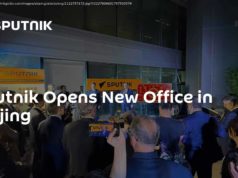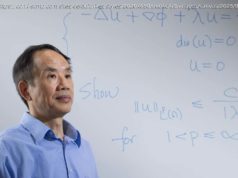US remains committed to defence of Taiwan, Mattis says, but later insists Washington abides by the one-China principle
China’s military delegation to the Asia Security Summit in Singapore has blasted the United States for including Taiwan in its regional strategic partnership with the Asian countries. In his speech at the first plenary session at the forum, also known as the Shangri-La Dialogue in Singapore on Saturday, US Defence Secretary James Mattis said the US would still abide by its commitment to Taiwan and other Asian countries, the first time Taiwan has been mentioned by a US delegation to the regional security forum since its inception in 2002. “The Department of Defence remains steadfastly committed to working with Taiwan and with its democratic government to provide it the defence articles necessary, consistent with the obligations set out in the Taiwan Relations Act, because we stand for the peaceful resolution of any issues in a manner acceptable to the people on both sides of the Taiwan strait”, Mattis told the plenary, even though he later explained that Washington would remain committed to the one-China principle during question time after his speech. Lieutenant General He Lei, vice-president of the PLA Academy of Military Science, who led the Chinese delegation to this year’s forum, said the US should not play up its Taiwan Relations Act with Taipei. “On the Taiwan topic, Mattis should not only mention the Taiwan Relations Act, but should also touch on the Three Joint Communiques [with Beijing] , ” He told reporters at the sidelines of the forum, and reiterated Beijing’s stand in opposing US arms sales to Taiwan, and any official contacts between Taipei and other countries. The Taiwan Relations Act was passed after the US established diplomatic relations with Beijing in 1979. Intended as a US security guarantee to the island, the act requires the US to come to Taiwan’s defence if the island comes under military threat from the mainland. Washington and Beijing also issued the three communiques between 1972 and 1982, which were the foundation for normalised Sino-US ties, with the US acknowledging that there was only “one China” across the Taiwan Strait. Senior Colonel Zhao Xiaozhuo said Mattis’s speech sent a wrong message to Taiwan’s pro-independence organisations during the current low ebb in cross-strait ties. Relations between Beijing and Taipei have been strained since President Tsai Ing-wen and her independent-leaning Democratic Progressive Party came to power last year and refused to recognise the so-called “1992 consensus”. The consensus is an understanding reached between the mainland and the former Kuomintang government the both sides were part of “one China”, but leaves room for interpretation as to which regime has the legitimate claim to represent it.






